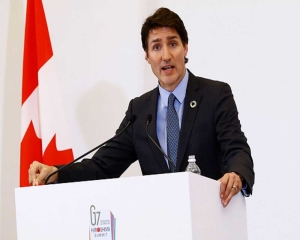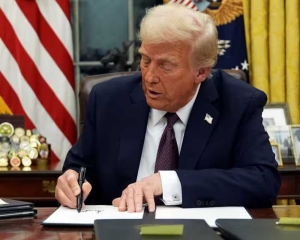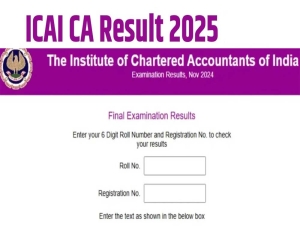It will promote new innovations, multi-disciplinary studies and academic collaboration
Motivation and Encouragement are the two keywords that are prerequisite to a successful education system. A competent education system has to have an inner web of strength that can have myriad strategies to meet unforeseen challenges.
Fostering the latest skills along with subtle ways of transmitting new moral codes and cognitive thinking are the main areas of National Education Policy. Our education system is known for embracing values and approaches that can shape the creative urge of students and academicians. However, there are increasing challenges posed by the transitional phase. The National Educational Policy (NEP) is a sincere effort to fill the gap in the existing realms of knowledge about the contemporary importance of interdisciplinary and multidisciplinary studies. The new input of the NEP will certainly make each discipline richer in content and varied in ideas. Even science students will be exposed to the nuances of international, national, socio-political and economic issues through multidisciplinary practices. One cannot but admire the ingenious display of pure genius of this approach to Government.
The recent attempt of UGC to invite feedback from academicians on making the institution a high-learning multidisciplinary institution is a great move towards a transparent and pragmatic approach. Earlier the invitation of draft suggestions for making effective online learning programmes already received positive feedback from all the stakeholders. Another major change that the NEP envisages is the provision for granting autonomy to the colleges and a common test for a four-year BA degree. The huge jump in the literacy rate from 12 per cent at the time of independence to whooping over 74 per cent as of 2021 is a major achievement of the government.
These policies will work as catalysts towards new innovations and provide academic collaboration between multiple disciplines and cooperation between the institutions of higher learning. During the last few years or so, there has been a period of substantial change in the contents and nature of various disciplines and a focused approach of adding real-life experiments of democracy, the environment, globalisation and governance into the framework of the new education system. There’s a need to show how new ways of higher education will drive change and instil confidence among the masses and explain how the latest research and happenings in the field of education across the globe can be disseminated so as to upgrade research and teaching accordingly. The strength of the higher education system lies in creating its internal dynamism by ensuring inclusive growth
As India needs to diversify its strategies to counter the challenges it faces from Pakistan and China, strategic knowledge and anticipating the move and motive would be helpful in nipping the problems in the bud. The NEP has a number of features that are quite useful for enhancing the level of strategic studies wherein young pupils can have a vast canvas to identify their choice of disciplines. It would help them realise the inner strength, resilience, intellect and accuracy of thinking and excellent coordination between mind and body among the youth, particularly from lesser-known areas, for serving the nation with all integrity and conviction. This is not only an attempt to bring them to the mainstream but a major step towards fulfilling the inner penchant for equity and social justice.
The procedure of accountability and disclosure was anxiously awaited and would make the system foolproof. The NEP involving a more practical-based approach at the tertiary level would help catch and identify the inclination among the new generation towards strengthening the country’s forces.
The new attention and scope for innovation would attract talent and enlighten them to seek career opportunities in Defence services. The NEP has provided a new gateway to the problem-solving mechanism and a huge platform for the education sector in India. Undoubtedly tremendous efforts have been made towards creating an environment that generates smooth, easily understandable yet cognitive, constructive and analytical skills among the harbingers of the future.
The provision of a single regulator and numerous entry and exit options with regard to formal degrees have been some of the salient features of the NEP which deserve all the appreciation as a new beginning to understanding the core security problems which can be comprehended in a brighter manner with an option of choosing Defence and security as one of the important subjects of the larger discipline either at the undergraduate or postgraduate levels. The research on such issues would invite tremendous receptiveness on the part of higher education since the ongoing low-intensity insurgency perpetuated by Pakistan and the expansionist mission of China have reaffirmed the obnoxious conspiracy to hit India where it matters the most by creating a socio-religious and security quagmire.
Besides, it will send out a loud and clear message that India cannot reciprocate in the same manner as it has certain firm convictions and policies towards ensuring peace through the defensive mechanism. This has carried forward the question of re-establishing the credibility and confidence among people that India is not a soft state but it wants to avoid war and conflict as much as possible. The new learning of socio-political aspects of the problem of insurgency, terrorism and Naxal violence would help security personnel get well-versed in the psychology of terrorists and criminals.
The attempt to sensitise about exploring our domestic underpinnings with a renewed focus on the role of addressing the multiple shades such as gender sensitisation and concern of marginalised communities by way of the creation of Special Education Zones through community-based social democratic ideas and values in the process deserves all the appreciation. Besides, it would help in understanding social responsibility. In addition to this, a new approach can also provide a clear way forward for students interested in Defence studies by getting them to learn new techniques. The latest opportunities would open up a fresh outlook and generate an introspective discourse to seek multiple options and viewpoints to see one’s right place according to one’s interest.
There are numerous provisions under NEP that can ensure a collaborative creation of ideas and provide tips to comprehend even tedious and complex issues. As far as education at the tertiary level is concerned, NEP’s approach appears to set out a very clear way forward by getting the mentors fully involved in new techniques and developing challenging strategies to meet the needs of all categories of students.
Hence, in order to enhance the standard of students it would be imperative to develop self-academic orientation and excellence to deliver and provide problem-solving and inquiry-based learning activities with which students can further formulate and test their ideas, draw conclusions and inferences, and pool and convey their knowledge in a collaborative learning environment. An introduction of a new syllabus would provide a vivid and deeper insight into the problem of terrorism and its causes and thereby may lead to a road map towards a foolproof encountering strategy. This combating strategy will have to look into the basis of the funding for terrorism, and the nexus among arms dealers, drug traffickers, smugglers and terrorists. Proper knowledge about the nexus between organised crime and terrorism can be of immense use.
The vision of the NEP is bound to make India the most competitive in the field of strategic education and would have many takers. The new facilities in security and Defence areas would enthral the new generation and provide a new perspective to all the aspiring academicians and students who are shortly going to step out into the world of competition much beyond a regulated framework. Creativity and constant potential for innovation are integral parts of NEP that help in new idea generation. It helps in harnessing the prowess of new expressions and creative ways of problem-solving.
(The writer is a recipient of the Bharat Gaurav Award and is a professor and an expert on strategic affairs)

























